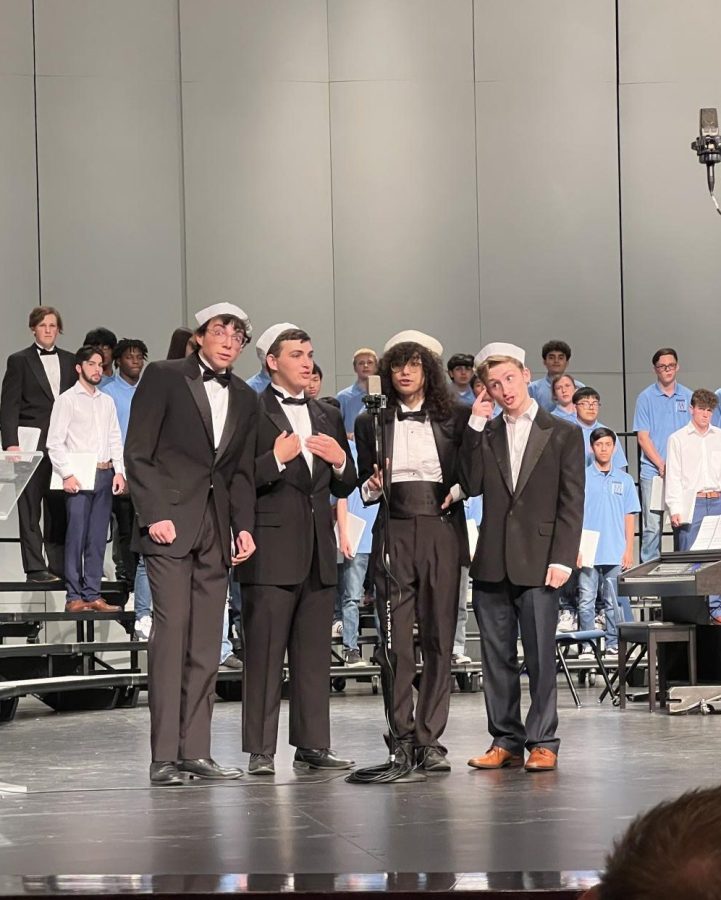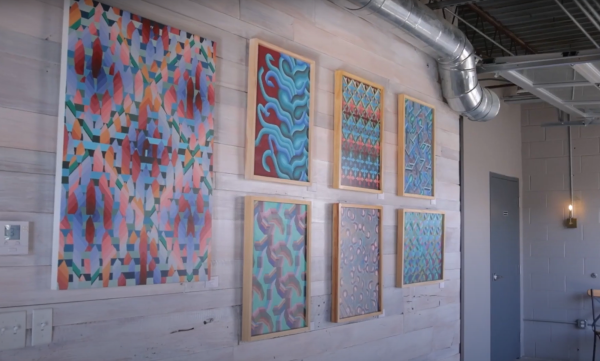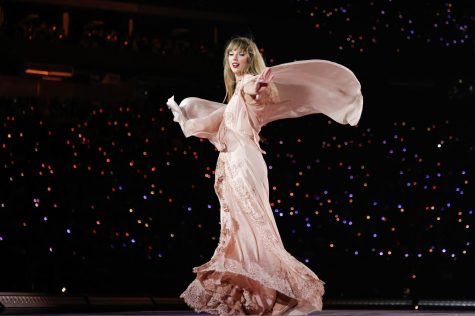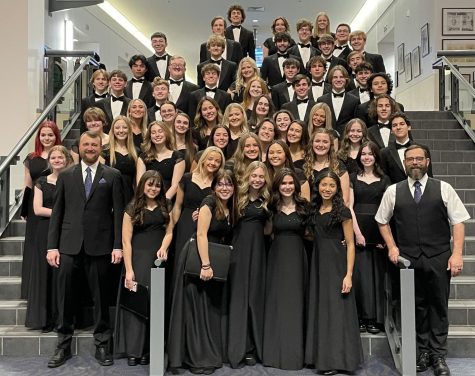Barbershop quartet wakes up crowd
With his legs shaking out of control and his eyes focused solely on the microphone in front of him, unable to acknowledge the crowd ahead, senior Dutch Leidlich takes a deep breath and sings the first note of “Coney Island Baby”. With his best friends by his side, his anxiety vanishes as the chord settles in. Leidlich and his barber shop group, Har-Ber Shop, entertain audiences with classic barber shop songs combined with theatrical choreography. Har-Ber shop as it is known today debuted at the 2021 Spring Choral Concert with a performance of “Coney Island Baby”, originally performed by The Excellents. Aside from Leidlich, the group is comprised of seniors Ryan Gay, Jeb Sadefur, and Jagger Thompson.
“There was a group prior to us, but they were really small and they didn’t practice all the time,” Leidlich said. “I was in Men’s Chorus and Jagger sat right next to me and I was like, ‘Hey, we love barbershop and we love really hard music, so let’s just like make our own group.’”
The boys were all in the Southwest Junior High men’s chorus, where they first learned the song “Coney Island Baby”. According to Sandefur, their shared connection to the song is what inspired them to use it for their debut performance. For other performances, the group focuses on the occasion when deciding on songs.
“We think of what the performance is and what we want from the audience,” Leidlich said. “This year we’re picking a sad song and a happy song, and then we’re picking something epic that will leave the audience in awe.”
According to Leidlich, the group understands their purpose to be waking up the audience between choirs. Their goal is to add variety to choir concerts to make them more interesting.
“I think in choir, we get so obsessed with sounding pretty that we kind of forget the performance aspect that goes into it,” Leidlich said. “So we sound amazing, but like halfway through a concert, you’re kind of falling asleep because the songs are like lullabies. When you have a couple of idiots come up on stage and goof around for a song or two, then you’re suddenly awake.”
Sandefur feels that the silliness of their performances has done wonders for his stage fright. According to Sandefur, he has been struggling with this for years, and doing it with his friends has made his fear much less intimidating.
“I just had to force myself to do it,” Sandufer said. “You have to think to yourself, ‘I’ve prepared for this and now I’ve just got to go out and do it.”
Leidlich agrees that singing with his friends has made the whole process much easier, it’s allowed them to have fun along the way.
“We goof off for about half of rehearsal,” Leidlich said, “and then we start singing the music we’ve transcribed. We argue for about like 5% of it and then we go back to singing and then we goof off more. It’s a lot of fun.”
According to Leidlich, the only reason they get to do such difficult and intricate performances is because of their first tenor singer, Thompson’s, special abilities.
“Jagger is phenomenal,” Leidlich said. “He has perfect pitch. He could tell you what any note is. He transcribed a lot of our music, which is really hard to do.”
Other than having fun with his friends, Leidlich attributes his love for this form of singing to its lighthearted nature and complex chord structure.
“It’s goofy,” Leidlich said. “The thing about barbershop is that to be qualified as barbershop music 60% of the song has to be a dominant seventh chord. That is what the barbershop sound is. And it just sounds really beautiful.”
Leidlich emphasizes that barbershop singing, which dates back to Shakespearean times, is a dying art. Barbershop, according to Leidlich, was originally intended to be music to listen to while waiting, and was often performed while waiting for big opera shows to begin.
“No one really goes to big operas anymore,” Leidlich said. “I mean, you can go to a concert but like, you’re not going to see a bunch of barbershop guys performing while you’re waiting in line for a rock concert.”
Despite the declining popularity of barbershop singing, Leidlich hopes that Har-Ber Shop will continue to thrive after this year.
“We’re all seniors and we’re gonna be gone,” Leidlich said. “We’re looking for people to be the barbershop quartet after us.”






